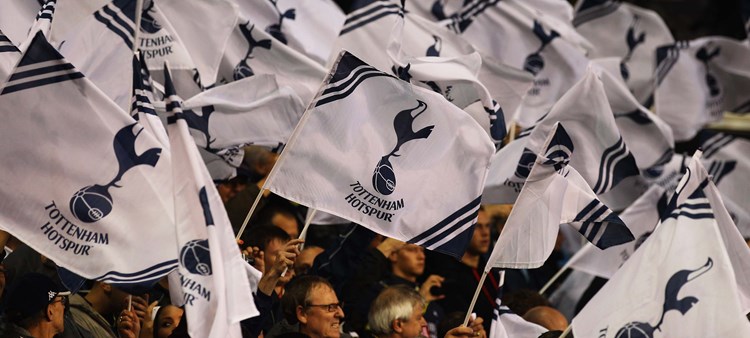
The Bill Nicholson years - playing days - 1936-1954
Thu 23 October 2014, 16:17|
Tottenham Hotspur
As we build up to the Bill Nicholson Anniversary Match against Newastle on Sunday, celebrating the life of the great man on the 10th anniversary of his passing, we've put together a four-part series detailing his 68-year association with the Club.
We start with his playing days, from turning up for a trial in 1936 through his retirement in 1954, 341 appearances and back-to-back title wins later.
THE BILL NICHOLSON YEARS - THE PLAYER - 1936-1954
Born at Scarborough on January 26, 1919, William Edward Nicholson was the second youngest of nine children. He attended Scarborough Boys’ High School, playing in the school team at centre half. On leaving school he worked as a laundry assistant for six months and played for the Young Liberals side in a local league.
Recommended by his manager to our York based scout, he was invited for a trial by chief scout Ben Ives in a letter dated February 29, 1936.
The Tottenham Weekly Herald dated Friday, March 13, announced in a six line paragraph: "On Trial — Spurs are giving a month’s trial to an amateur, Wm. E. Nicholson, an inside right of Scarborough Working Men’s Club. He recently celebrated his 17th birthday. His height is 5ft 8ins and weight 10st 12 lbs."
The Herald’s first mention of Bill wearing the club colours was in a 3-5 defeat of our ‘A’ team at Guildford City on March 21. Assigned to the White Hart Lane groundstaff, Bill scored a hat-trick on his second outing for our ‘A’ team, in a 7-1 victory over Brentwood Mental Hospital on November 19, 1936.
He also featured for Northfleet Amateurs during 1937 and it was about this time that he switched from playing at inside forward to left back. He made his debut for our London Combination reserve team in a 3-0 home win over Bournemouth & Boscombe Athletic on January 1, 1938, and was given a professional contract with the senior nursery club Northfleet United. On April 18, 1938, he gained a Kent Senior Cup winner's medal in the final against Dover.
Bill signed professional forms for us during August, 1938, and added a further nine appearances to his second XI tally prior to making his Football League debut at Ewood Park in a 1-3 defeat by Blackburn Rovers on October 22. He picked up a thigh injury and spent the latter part of the match playing at outside right but was fit enough to return to reserve team duty the following week.
At the time he was the tenth youngest player to have featured in our League team.
Below: Bill in action against Arsenal at Highbury

During the war Bill served the Durham Light Infantry, rising to the rank of sargeant. He worked as an instructor in infantry training and physical education as well as playing plenty of Service football. Extended spells as a guest player at Newcastle United and Darlington were supplemented by briefer stints with Hartlepools United, Middlesbrough, Sunderland and Fulham. After the war he served the Central Mediterranean Forces HQ at Udini, Italy.
On returning to civvy street he attended FA coaching courses at Birmingham University and passed his Full Badge at the first attempt.
By 1948 Bill had settled in to the right half berth and was a regular reserve for the England team.
During December that year he scored the first of his six League goals - in 314 appearances for us - at Fulham, which was also the club’s 2,000th in the Football League.
The 1949-50-51 ‘Push and Run’ campaigns saw Bill miss just four games as we lifted the Second and First Division championships in consecutive seasons. In 1950 he travelled to the Brazil World Cup as a member of the England squad having played three times for the ‘B’ team and gained FA and Football League representative honours. His only Full cap was gained at Goodison Park against Portugal on May 19, 1951. Bill scored within the first 30 seconds of a 5-2 victory. In all, he stood by as a reserve on 22 occasions.
Bill eventually retired in 1954-55 having appeared for us on 341 occasions in the league and FA Cup, scoring six goals.
Mel Hopkins, a team-mate of Bill's towards the end of his playing days and a legend in his own right with 240 appearance between 1952-62, felt Bill's talent should have been recognised more on the international stage.
"In my opinion, he made Alf Ramsey," said Mel, who sadly passed away in 2010. "Alf was clever, quick, a good passer of the ball, not a great tackler but Bill did his work allowing Alf to be the footballer, Bill was the one who did the graft. He was a marvellous player and should have had more caps really, he only had one."












